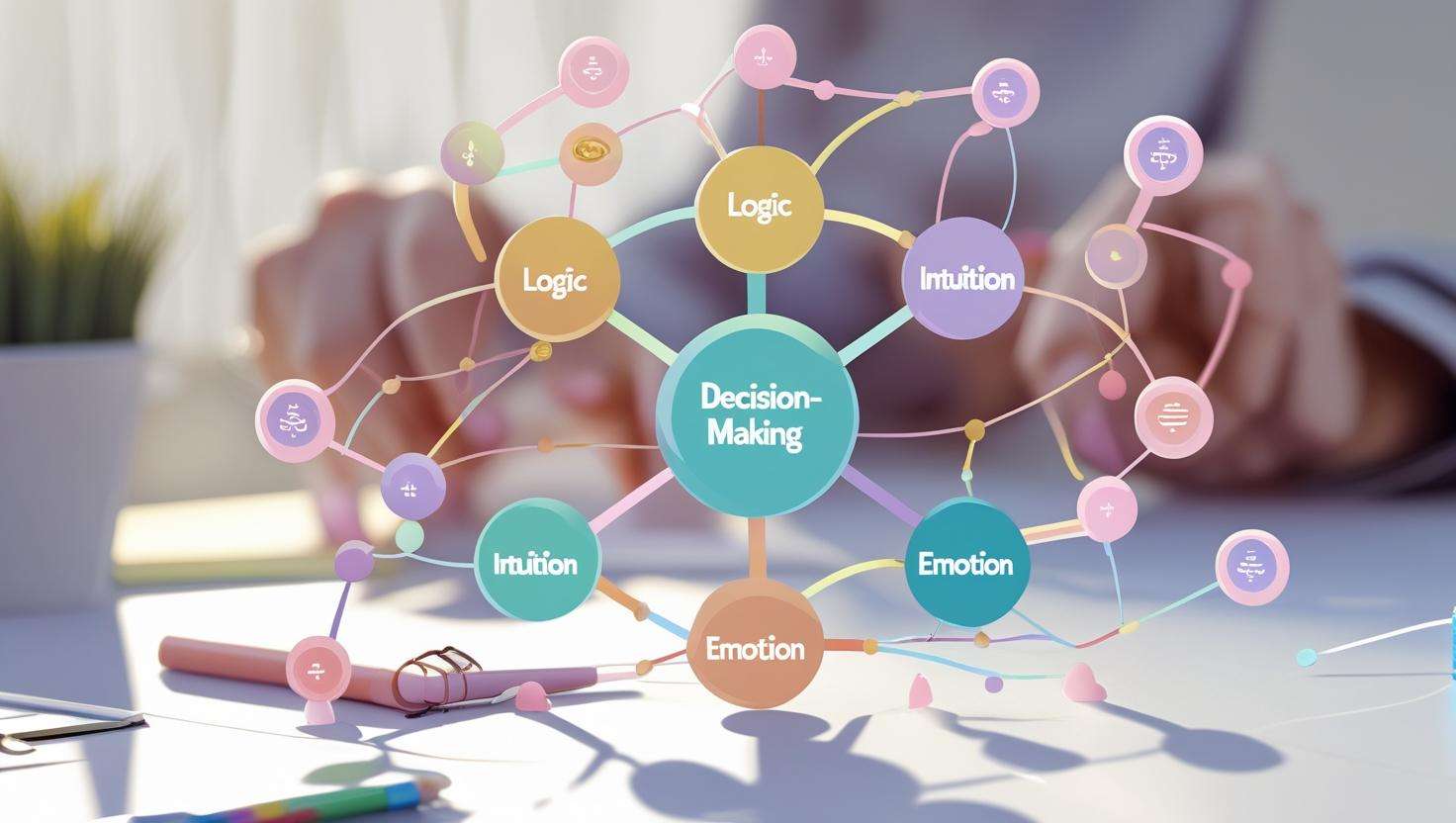
Table of Contents
Decision-making isn’t just a corporate buzzword. It’s a fundamental leadership skill part logic, part gut feel, and part structured methodology. In this blog, I reflect on key insights I learned through my academic and professional journey covering decision-making models, human traps, analytical methods, and mathematical tools that shape better decisions.
The Decision-Making Process A Strategic Framework
Every effective decision goes through a flow:
- Define the Problem: Whether it’s a malfunctioning software or a failing supply chain, identifying the root cause matters more than solving surface symptoms.
- Identify Alternatives: Creativity, analogies, and inferences open up possibilities beyond obvious answers.
- Assess Alternatives: Use quantitative techniques like linear programming, forecasting, and risk analysis to weigh trade-offs.
- Apply Selection Criteria: Consider time, cost, risk, and performance often requiring a delicate balance.
- Make a Choice & Implement: And finally, monitor outcomes and iterate.
The Human Element in Decision-Making
While frameworks are essential, decision-making is deeply human:
- Behavior and Bias: Decisions are influenced not just by data, but by intuition, ego, and emotion.
- Styles of Thinking: Some are structured and analytical, others spontaneous and intuitive. Effective leaders respect both styles.
- Team Dynamics: The real challenge is aligning diverse thinking styles into a cohesive strategy.
Common Decision-Making Traps to Avoid
Even seasoned leaders fall into these unconscious traps:
- Anchoring Trap: Over relying on the first piece of information.
- Status Quo Trap: Choosing familiarity over better alternatives.
- Sunk Cost Trap: Justifying bad decisions by past investment.
- Confirming Evidence Trap: Cherry-picking data to support existing beliefs.
- Framing Trap: Being misled by how a problem is posed.
Tip: Always challenge your assumptions. Invite opposing views. Ask “What if I’m wrong?”
Decision Analysis: Math Behind Smart Choices
Quantitative decision-making brings clarity in complexity:
- Linear Programming (LP): Optimize product mix, resource allocation, and profit scenarios using objective functions and constraints.
- Sensitivity Analysis: Understand how slight changes in parameters impact your outcomes.
- Shadow Pricing & Slack: Know the hidden value and flexibility in your constraints.
- Complementary Slackness & Duality: Advanced LP tools to find efficient solutions and cross validate outcomes.
Tools like Excel Solver bring these concepts to life in real business environments.
Decision-Making Under Uncertainty
No decision is risk-free. That’s where probability and risk analysis step in:
- Modeling Risk: Use simulation and probability based reasoning.
- Forecasting Biases: Beware of overconfidence, recallability errors, and the prudence trap.
Final Thoughts: Decision-Making Is a Craft
It’s easy to assume that good decisions come from good data. But the truth is they come from good process, sharp awareness of cognitive traps, and a healthy mix of analytics and empathy.
As a leader or aspiring professional, mastering decision-making is your superpower. Combine structured thinking with behavioral awareness and mathematical tools to make decisions that don’t just solve problems but create long term impact.
At the end of the day, decision-making is both an art and a science and at NextGenSoft we’ve built our services around that belief. Whether you’re optimizing your DevOps pipeline, adopting AI agents, or building custom software, we can help you turn complex choices into clear strategies.
Curious how we apply these principles in practice? Let’s connect at www.nextgensoft.io
